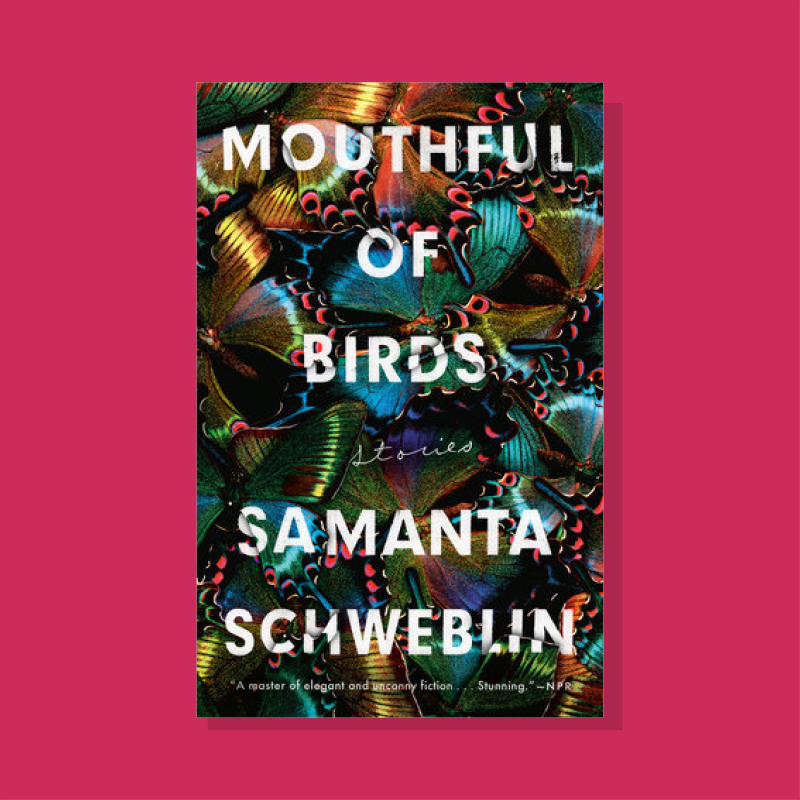
One of my favourite contemporary writers today is Samanta Schweblin. The Argentine first came to prominence in the English-speaking market with the translation of Distancia de rescate (Fever Dream), which was shortlisted for the Man Booker International Prize in 2017. In this novel, Samanta Schweblin’s prose, deftly translated by Megan McDowell, exemplifies the style of writing – urgent, suffocating, streams of semiconsciousness at times – that perhaps inspired the discrepancy between the English and the original Spanish titles. While we never truly understand what happened to some of its characters, Schweblin’s mastery of the ambiguous elevates the inherent panic of parenthood and environmental decay to throbbing exigency. I was grateful for its compact length, though its page number is no indication on its narrative impact. Years later, I still feel submerged by its remaining questions.
Schweblin is so gifted in presenting titanic horrors in economic packages. A similarly short volume, Mouthful of Birds (from the Spanish Pájaros En La Boca Y Otros Cuentos), containing twenty stories, some just a few pages long, introduces characters, terrains, and motivations that are mysterious, ominous, and, at times, desperately empathetic. Themes and imagery recur, like a lingering shadow among these unconnected tales, yet, nothing is contrived or belaboured. Such is Schweblin’s technique – in a geography where her literary ancestors and contemporaries are proclaimed for their lush, dazzling descriptions in magical realism, Schweblin conjures similar enigmas in the ephemeral, silences, and pits of our psyches.
The first story (“Headlights”) is so cinematic, a fitting tribute to Schweblin’s degree in screenwriting. A woman’s husband deserts her on the side of a road in the middle of nowhere in the middle of the night. There, she, along with other discarded women, navigate the dangerous roadside until what looks to be a fairy tale ending approaches, only to reveal itself as an apocalyptic message that feels especially poignant in the #MeToo age in which it was published.
Then there are the odes to parenting. In the title story (“Mouthful of Birds”), a father struggles with taking primary custody of his daughter, of whom the child’s mother, at the brink of insanity, admits “One more day with her and I’ll kill myself. I’ll kill her, and then I’ll kill myself.” From this initial falling out, Schweblin adds each ingredient (the cages and the boxes, the feathers, the bathroom rituals) knowing how hard it would be for the reader to swallow, but like some of the most bewildering miseries of parenting, we do it anyway. Along with “Preserves” and “Butterflies”, Schweblin presents some of the most touching chronicles of parenthood, balancing out both the delicacy and brutality of raising all forms of children.
Like Fever Dream, some of the stories in the collection focus on the body, its pain (“Rage of Pestilence”), pleasures (“The Merman”), and horrors (“The Heavy Suitcase of Benavides”). A standout for me, though, is “Olingiris”, a deliciously rare example of the tactile in text. I must divulge here that I may be biased as this story seems to be a healthier manifestation of trichotillomania, but like all of Schweblin’s tales, the discomforts are viciously more than skin-deep.
My absolute favourite is “Toward Happy Civilization,” a story so precisely crafted, so vividly unravelled, that I wouldn’t be surprised to see it adapted to many different art forms. A man waits at a train station and takes up lodging with the station’s attendant. Despite the banality of the landscape and the futility of the situation, the characters all lead a relatively mundane life until the man executes an escape plan with other residents who have also remained stuck at the station. In the final moments of the story, we have the man and his compatriots arduously boarding the train after monumental attempts, only to observe what they had hoped to reach. It is an incredible look at survival and the movement of time, and exemplifies the very best of the short story form. In this entire collection, particularly in this story, Schweblin channels the fantastical of Angela Carter and the surreal existentialist dread of Giorgio de Chirico.
Samanta Schweblin’s next book, another short story collection titled Seven Empty Houses (translated from the Spanish original Siete casas vacías by Megan McDowell) will be published by Riverhead Books on October 18, 2022. Schweblin has been longlisted for the Man Booker International Prize three times (for Fever Dream (and later shortlisted), Mouthful of Birds, and the novel Little Eyes) and co-wrote the screenplay for the Netflix adaptation of Fever Dream.
— Sarah Wang, Programming Coordinator
